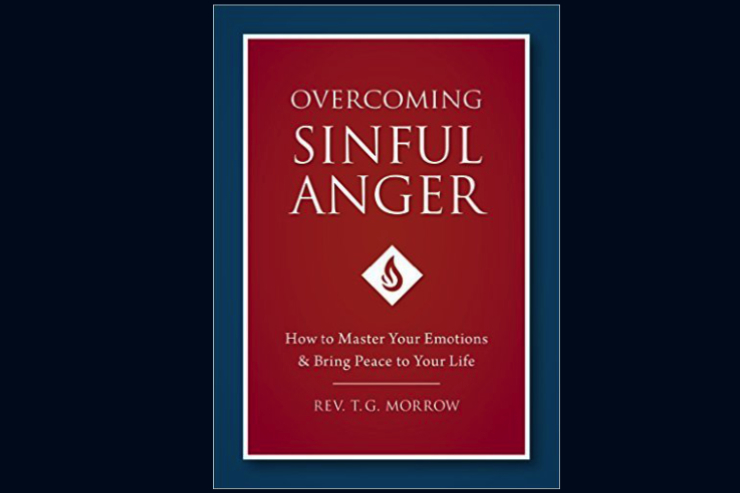
Anger is a beast. Justified or not, anger destabilizes relationships—husband and wife, families, and those in the workplace. Stress, frustration, bitterness over past or present events and situations, constant set-backs and dealing with unreasonable people contribute to the swirling vortex of anger in our culture. And then there’s politics. Anger separates us from God.
Our culture is angry. In our increasingly secular, atheistic culture men are in a constant contest to be God. They can’t hit that Divine Mark and the cycle of anger starts all over again. Never ending anger threatens to swallow us at every turn and others react with—anger.
In the Rev. T.G. Morrow’s book, Overcoming Sinful Anger – How to Master your Emotions & Bring Peace to Your Life (Sophia Institute Press), he addresses how we can deal with our angry selves. He begins by distinguishing the difference between feelings of anger and acting on those feelings. There are ways to express anger and it’s not just about blowing up or being in a perpetual state of distress.
He outlines three top reasons to help understand why people get/are angry. They are power and control, refusal to take responsibility, and habit. Learning to pause and pray goes a long way in diffusing angry feelings. Also important is “do not let the sun go down on your anger and give opportunity to the devil” (Eph. 4: 26-27). Find God in the middle of angry thoughts and feelings.
Consider forgiveness. Powerful, life and soul saving forgiveness cures anger. Morrow writes that “forgiveness is one of the most fundamental things we are called to practice as Christians. For if you forgive men their trespasses your Heavenly Father also will forgive you; but if you do not forgive men their trespasses, neither will your Father forgive your trespasses.” (Matt. 6: 14-15). Forgiveness is not a phony throw away, “I forgive you.”
There is a blueprint for forgiveness, and Morrow presents four stages to forgiveness which are especially helpful if anger is long term and becomes debilitating. The withholding of forgiveness can be damaging to our interior life and soul. Forgiveness is giving up all resentment, all desire for revenge, and to work for the person’s good. These actions do not mean we need to become close friends. If the person who offends you is not trustworthy and likely to repeat hurtful actions, protect yourself by keeping a healthy distance. We need to protect ourselves from ongoing hurts.”
As with all sin, pride is at the root of much anger and our inability to forgive. Today, everyone is offended by one thing or another. “I’m offended” has become a cultural mantra. People chew on the slightest of so-called offenses. Morrow writes “sometimes we just have to live with an injustice, and if we bear it patiently, we gain a great deal of grace.” Morrow touches on anger in marriage, long held hurts that continue to scratch and kick in our hearts. Perhaps, we become angry at God because the answer to a prayer was “No.”
Which brings us to humility, the only virtue that can cure anger and the inability to forgive. Humility and prayer go hand in hand for holy forgiveness. Saint Augustine wrote, “If you ask me what is the most essential element in the teaching and morality of Jesus Christ, I would answer you: the first is humility, the second is humility, and the third is humility.”
The last two chapters of the book are most helpful. A chapter on learning to overcome one’s anger and how to help your children overcome theirs. In learning to overcome our habit of anger (italics mine), Morrow gives us six reasons for making life easier, more prayerful, and grace-filled. Saint Catherine of Siena wrote “There is no sin or wrong that gives a man such a foretaste of hell in this life as anger and impatience.” If you have children with anger problems, the last chapter is helpful and informative. It’s safe to say that a child’s anger—especially that of toddlers – can be particularly frustrating. Morrow has sound advice and recommends a book by Douglas Riley; What Your Explosive Child Is Trying to Tell You.
Sinful Anger has much to offer—easy to read and well written. Morrow sums up thus:
“To overcome anger we have many more tools than just willpower. There are many techniques that can help us to accomplish the changes we are trying to bring about in our lives. Overcoming anger should be a paramount change we should strive for as Christians. We should use every tool we can to help us bring about a life of peace and, as a result, a life of grace.”














